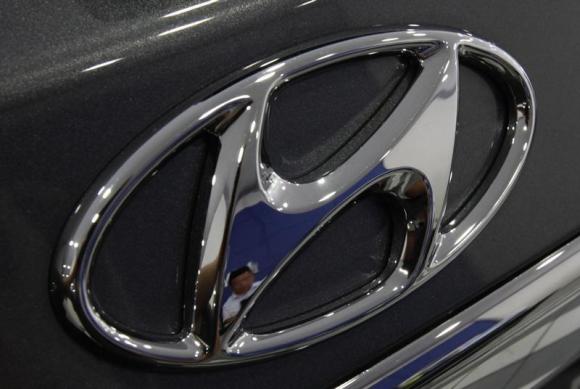A Hyundai Motor official would not confirm that they would be using batteries from China's CATL for its EVs, only saying that it uses batteries from various manufacturers, and the kind would depend on each vehicle type.
The official added that Hyundai doesn't say what particular company supplies its EV batteries except during recalls.
There were reports that CATL will supply lithium iron phosphate (LFP) and nickel, cobalt, and manganese (NCM) batteries to Hyundai Motor as part of its drive to increase its global presence in the electric vehicle (EV) battery market.
According to a CATL official, they have cutting-edge technological strengths and long development and application experience in LFP and NCM batteries.
The official added that the type of battery to be supplied would depend on its customers and the market.
CATL recently established its regional office in Seoul, its fifth overseas branch following those in Japan, Germany, the US, and France.
CATL's plan to supply Hyundai with batteries can be understood as its involvement as a battery supplier for the E-GMP, the South Korean carmaker's first platform dedicated to battery-powered vehicles.
For Hyundai, the diversification of its battery suppliers is consistent with its goal of becoming a top-tier EV maker, as battery prices account for the largest portion of EV production costs.
Hyundai is targeting EV sales of 1 million by 2025 and is aiming for an 8 to 10 percent share of the global EV market by 2040.
CATL fiercely competes against Korean battery companies, such as LG Energy Solution, Samsung SDI, and SK On.
According to market tracker SNE Research, CATL has the biggest share in the global EV battery market from January to September of this year with 31.2 percent, followed by LG with 23.8 percent, SK with 5.4 percent, and Samsung with 4.6 percent.



 Sony Q3 Profit Jumps on Gaming and Image Sensors, Full-Year Outlook Raised
Sony Q3 Profit Jumps on Gaming and Image Sensors, Full-Year Outlook Raised  FDA Targets Hims & Hers Over $49 Weight-Loss Pill, Raising Legal and Safety Concerns
FDA Targets Hims & Hers Over $49 Weight-Loss Pill, Raising Legal and Safety Concerns  Thailand Inflation Remains Negative for 10th Straight Month in January
Thailand Inflation Remains Negative for 10th Straight Month in January  Uber Ordered to Pay $8.5 Million in Bellwether Sexual Assault Lawsuit
Uber Ordered to Pay $8.5 Million in Bellwether Sexual Assault Lawsuit  Washington Post Publisher Will Lewis Steps Down After Layoffs
Washington Post Publisher Will Lewis Steps Down After Layoffs  Dollar Steadies Ahead of ECB and BoE Decisions as Markets Turn Risk-Off
Dollar Steadies Ahead of ECB and BoE Decisions as Markets Turn Risk-Off  Trump Signs Executive Order Threatening 25% Tariffs on Countries Trading With Iran
Trump Signs Executive Order Threatening 25% Tariffs on Countries Trading With Iran  Gold and Silver Prices Slide as Dollar Strength and Easing Tensions Weigh on Metals
Gold and Silver Prices Slide as Dollar Strength and Easing Tensions Weigh on Metals  Rio Tinto Shares Hit Record High After Ending Glencore Merger Talks
Rio Tinto Shares Hit Record High After Ending Glencore Merger Talks  TrumpRx Website Launches to Offer Discounted Prescription Drugs for Cash-Paying Americans
TrumpRx Website Launches to Offer Discounted Prescription Drugs for Cash-Paying Americans  Amazon Stock Rebounds After Earnings as $200B Capex Plan Sparks AI Spending Debate
Amazon Stock Rebounds After Earnings as $200B Capex Plan Sparks AI Spending Debate  Trump Backs Nexstar–Tegna Merger Amid Shifting U.S. Media Landscape
Trump Backs Nexstar–Tegna Merger Amid Shifting U.S. Media Landscape  OpenAI Expands Enterprise AI Strategy With Major Hiring Push Ahead of New Business Offering
OpenAI Expands Enterprise AI Strategy With Major Hiring Push Ahead of New Business Offering  Nvidia CEO Jensen Huang Says AI Investment Boom Is Just Beginning as NVDA Shares Surge
Nvidia CEO Jensen Huang Says AI Investment Boom Is Just Beginning as NVDA Shares Surge  SpaceX Pushes for Early Stock Index Inclusion Ahead of Potential Record-Breaking IPO
SpaceX Pushes for Early Stock Index Inclusion Ahead of Potential Record-Breaking IPO  Japan Economy Poised for Q4 2025 Growth as Investment and Consumption Hold Firm
Japan Economy Poised for Q4 2025 Growth as Investment and Consumption Hold Firm  Bank of Japan Signals Readiness for Near-Term Rate Hike as Inflation Nears Target
Bank of Japan Signals Readiness for Near-Term Rate Hike as Inflation Nears Target 































